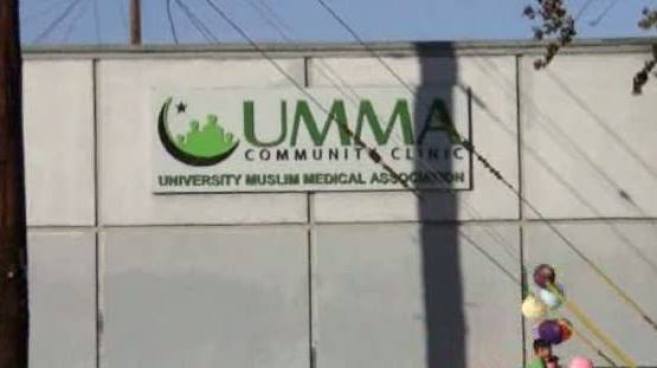
Patients Pay What They Can Afford
By Frank Snepp, Yvonne Beltzer and Tara Kangarlou
Tuesday, Apr 19, 2011
Updated 4:11 PM PDT
Courtesy Of "NBC Los Angeles"
From lower Manhattan to Temecula, California, anti-Muslim sentiments fueled by 9/11 often affect how many of us view the members of the Islamic faith, even when they’re fellow Americans. But right here in Los Angeles, a free medical clinic founded by Muslim-Americans provides living proof of how charity can bridge the deepest emotional and religious divides.
It began in 1992 when a group of Muslim medical students from UCLA decided to put what they saw as the implicit generosity of their faith into action by launching a free mobile clinic in south-central Los Angeles. The founders called themselves the “University Muslim Medical Association,” or “UMMA” —a phrase that derives from “uom,” meaning “mother” in Arabic.
“It’s sometimes covered in the media (that) Muslim-Americans want to take away human life,” says Yasser Aman, CEO of UMMA. “But here is a project that every single day tries to preserve it.”
Aman was one of the first volunteers to join the group. He and the other founders, he says, were deeply affected by the plight of LA’s south central community after the riots of 1992. The riots – sparked by the televised police beating of Rodney King – left much of the area devastated, and UMMA saw a need for the kind of neighborly outreach that Aman says is a core value of Islam.
“In fact it’s one of the five pillars of Islam, Zakat, which is the giving back of your own wealth,” he says, “whether it’s time, money, or other things for those who are not as fortunate.”
The clinic – the first such free medical facility founded by Muslims in the United States -- serves one of the poorest communities in Los Angeles and has provided care to more than 16,000 patients. Each of them pays only what he or she can afford, and each can expect equal care, regardless of racial or religious background. In 2009, for instance, more than 93 percent of the patients were Latino and African- American, and only two percent, Muslim, according to CEO Aman.
“This project from the start was about connecting with other human beings,” he says. “Back in the day Buddhist monks used to come here from Riverside because they found that there was a faith-based clinic in Los Angeles.”
Mitzi Lewis, a long-time UMMA patient, says she didn’t even realize at first that the clinic was Muslim-sponsored. “I was surprised at what they do, and the services that they have,” she says. “You don’t have to wait. They don’t turn you away.”
The clinic’s medical staff, now twenty-seven strong, is as diverse as the patient roster. Dr. Linh Vuong, a Buddhist from Vietnam, has dedicated much of her free time to UMMA.
“Giving back to the community is part of our Buddhist belief system also,” she says. “Outside of the boundaries of religion, we all get sick, we all are people first, we need to take care of that first.”
With affordable care and little patient-generated revenue, the clinic subsists on donations, according to UMMA’s Marketing and Development Director, Avais Chughtai. He says thirty percent of this money comes from Muslim-Americans who are simply practicing their faith.
“There is a saying by the Prophet Mohammad that if you go to sleep and your neighbor has gone to sleep hungry, you are liable for that,” he says “What the founders did they took that belief and extended it further.”
The clinic was already well established at the time of 9/11, and CEO Aman believes that’s why it survived the shockwaves of suspicion and hostility that blew back on many Muslim-Americans.
“Muslim-Americans go to the same stores, the same barbershops (as everyone else),” he says. “It’s important for all of us to understand that people of God are there to improve and to enhance the community.”
UMMA has served as the model for thirty-two Muslim-founded clinics across the country, and its co-founder was honored at the White house last year.
Meanwhile, the clinic is undergoing a renovation, adding rooms and resources to accommodate the clinic’s growing patient population, and is preparing to assist in launching a new clinic in Fremont High School in south-central Los Angeles.
“From the beginning this was an interfaith project,” says Aman,” an opportunity for Muslim-Americans, like members of any other faiths of this country to work towards what they can offer their community.”




No comments:
Post a Comment